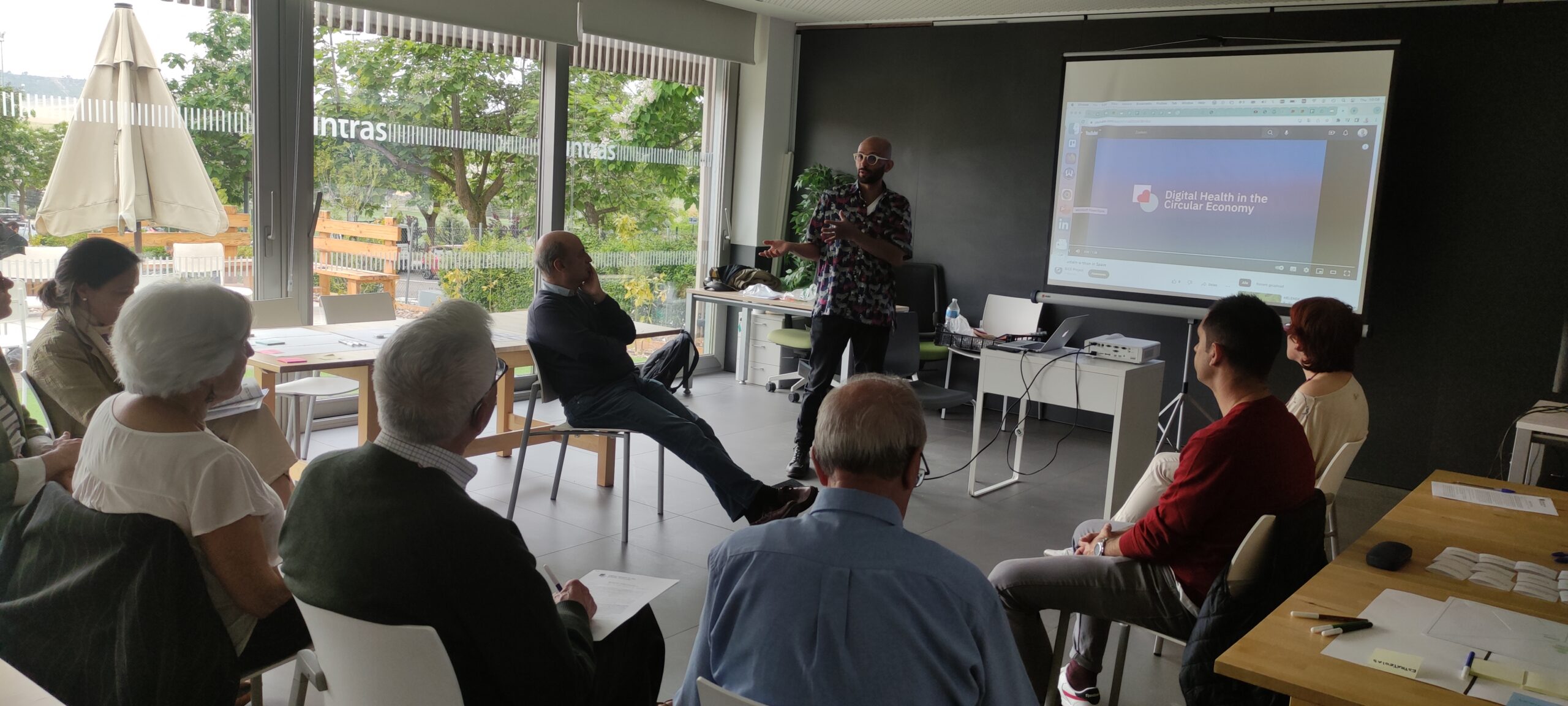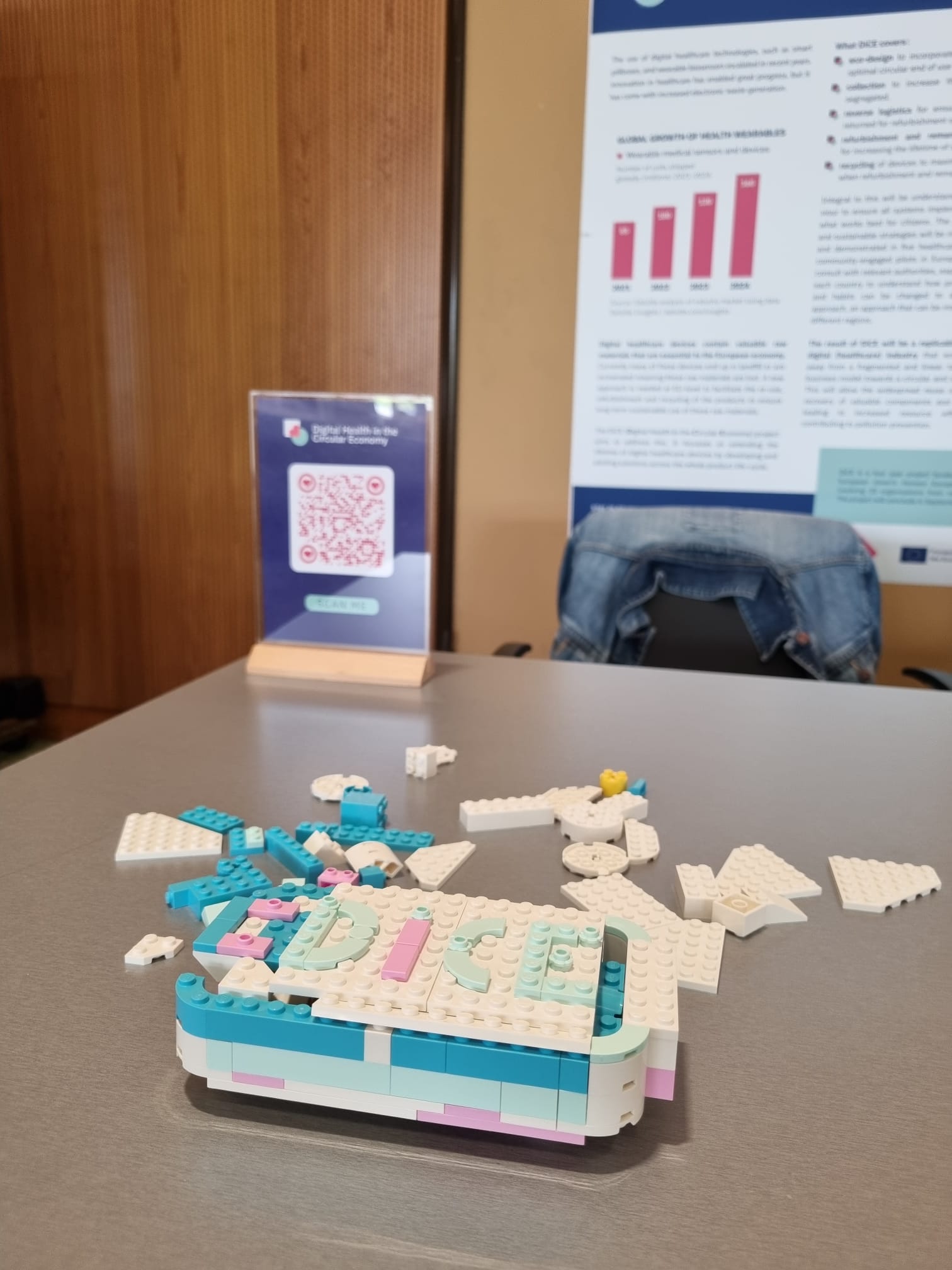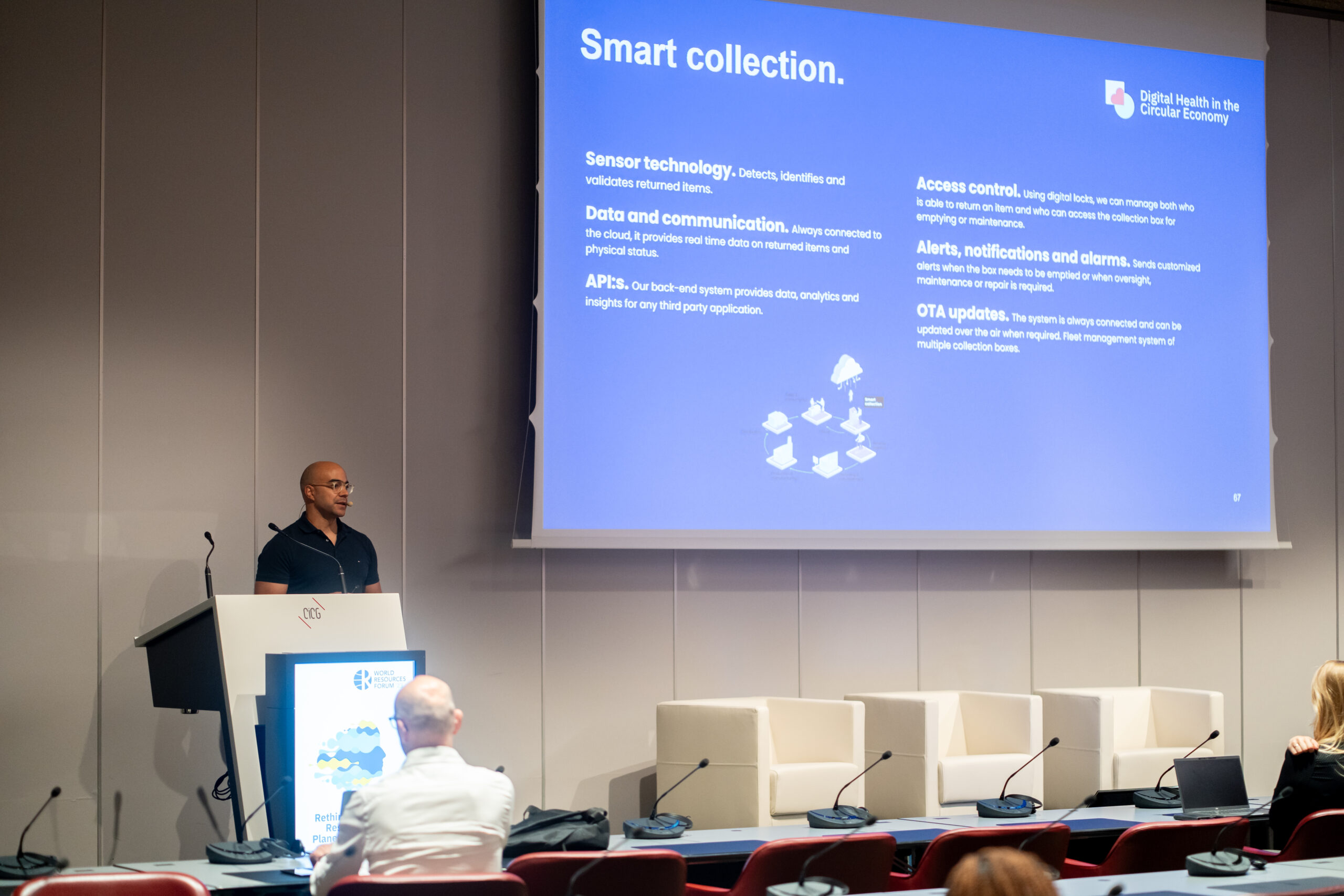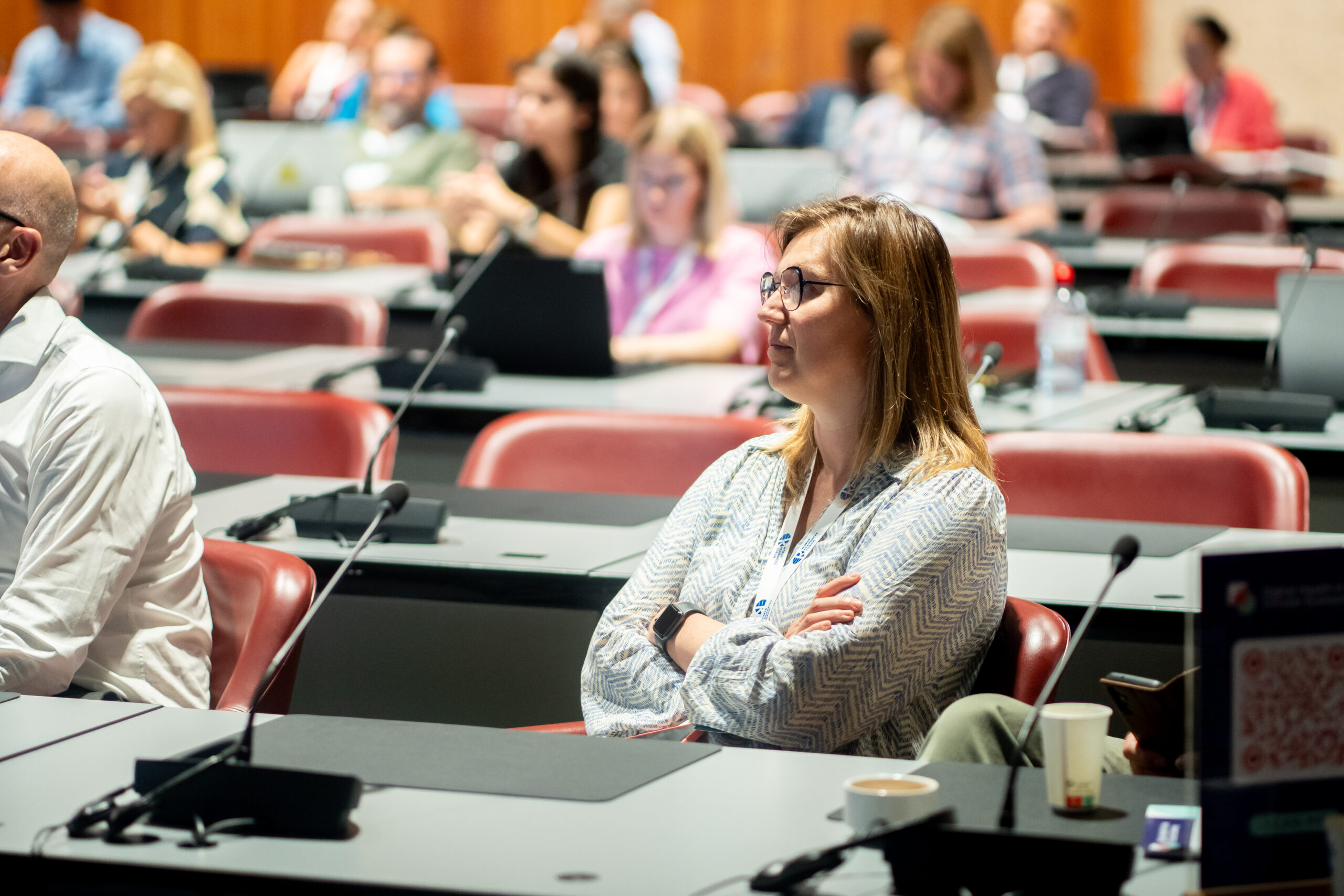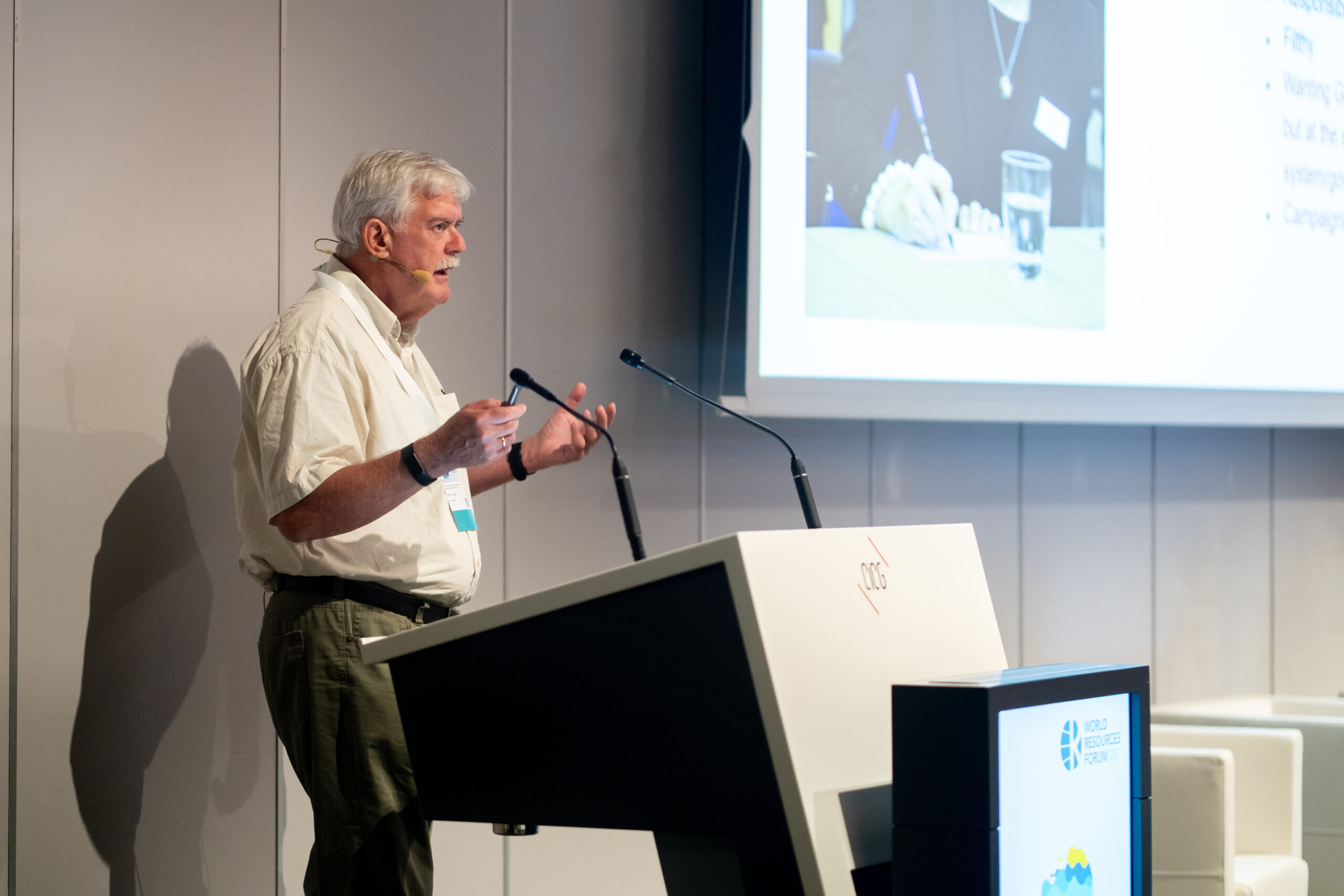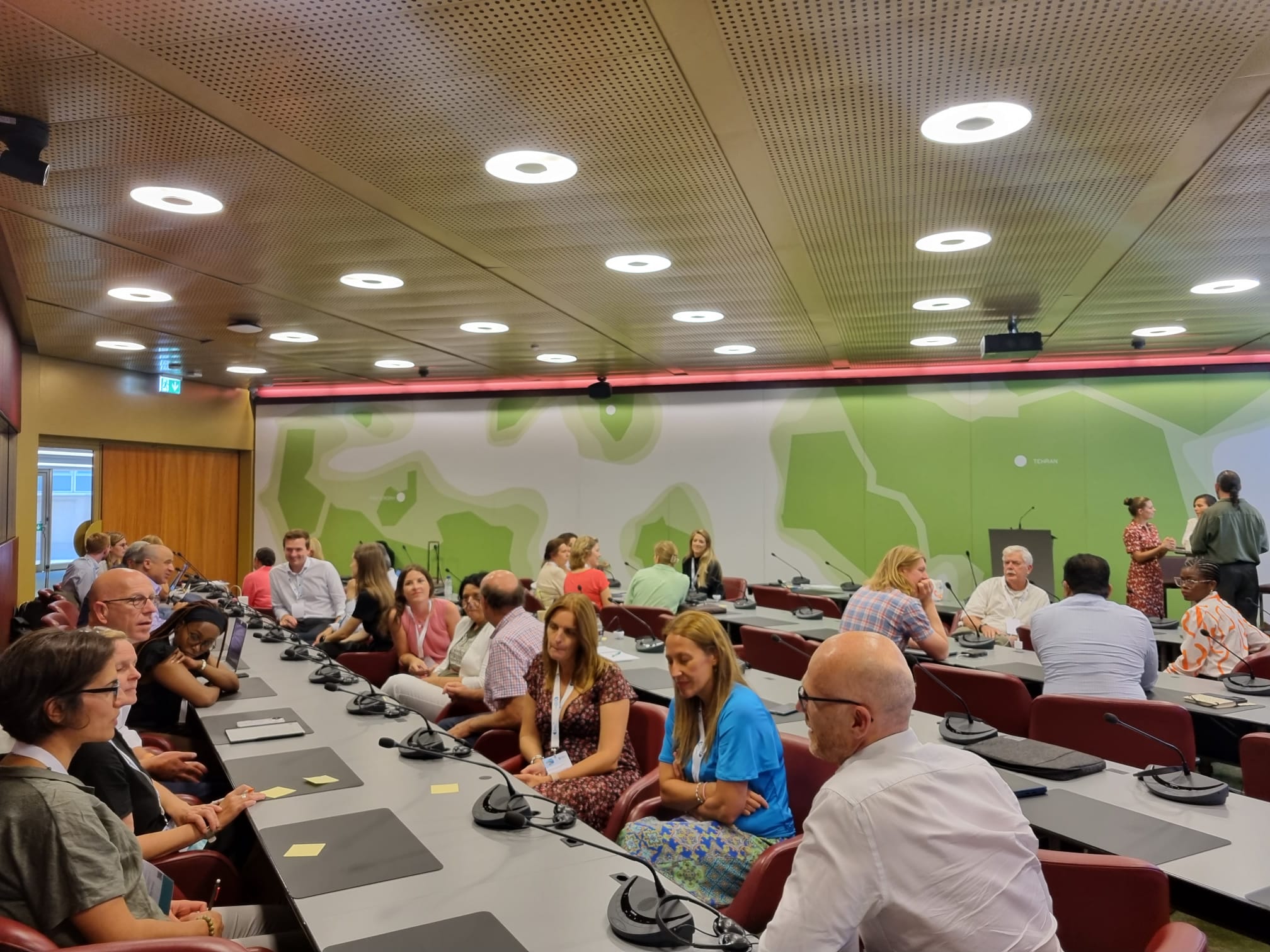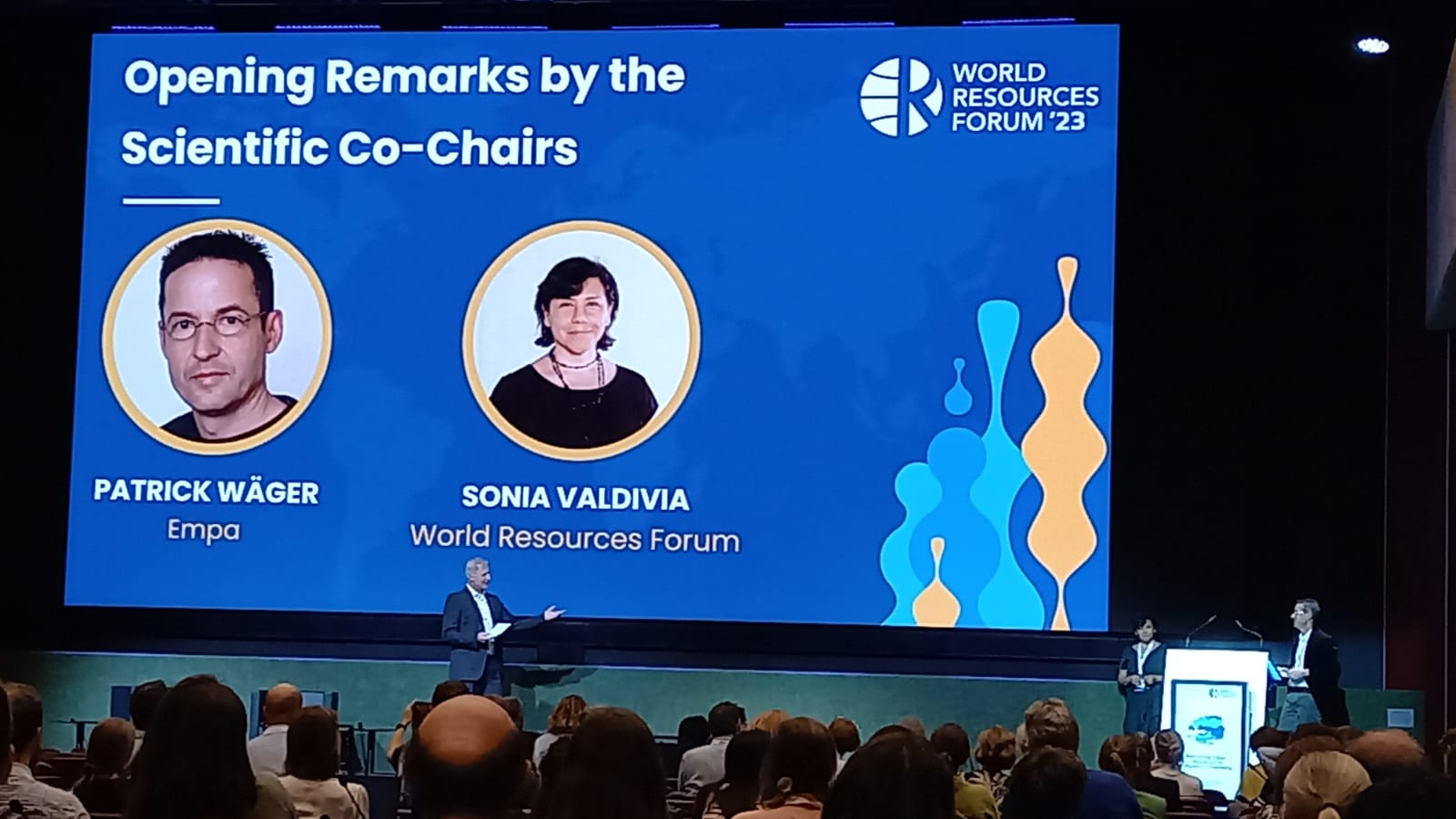Shortly after three successful Sustain-a-thon sessions in Belgium, Spain and Slovenia, DiCE partners (Games for Health, LiCalab, Intras, Regional Development Agency of Podravje – Maribor) have reunited to kick off the next phase: design sprints.
Following from our previous events, the aim did not change: in consultation with citizens, including healthcare professionals and patients; DiCE is looking to develop, iterate, and review nudging strategies to collect and recycle e-waste deriving from digital healthcare devices.
In this phase of the project, after carefully examining the preliminary findings of previous Sustain-a-thon sessions, our researchers are focussing on two specific products: the smart pill box, a particular type of a smart wearable sensor.
Concentrating on solely two products allows the participants and researchers to dive into the nitty-gritty details and pinpoint otherwise overlooked characteristics. The procedure repeated itself in every location. After a short ice-breaker and introductory session, participants were presented with the following tasks:
- Understand nudging strategies that were previously developed and decide whether they are viable, as well as analysing why citizens recycle or do not recycle.
- Brainstorm ideas for the two products in question, balance the pros and cons and at last, vote on the best solution.
- Repeat and compare notes from the different groups.
- Once the ideal solution has been found, it is time to role play. Who wants to be the customer who’s never satisfied and how can we answer the arising questions?
- At last, let’s reflect on the entire process and share the next steps.
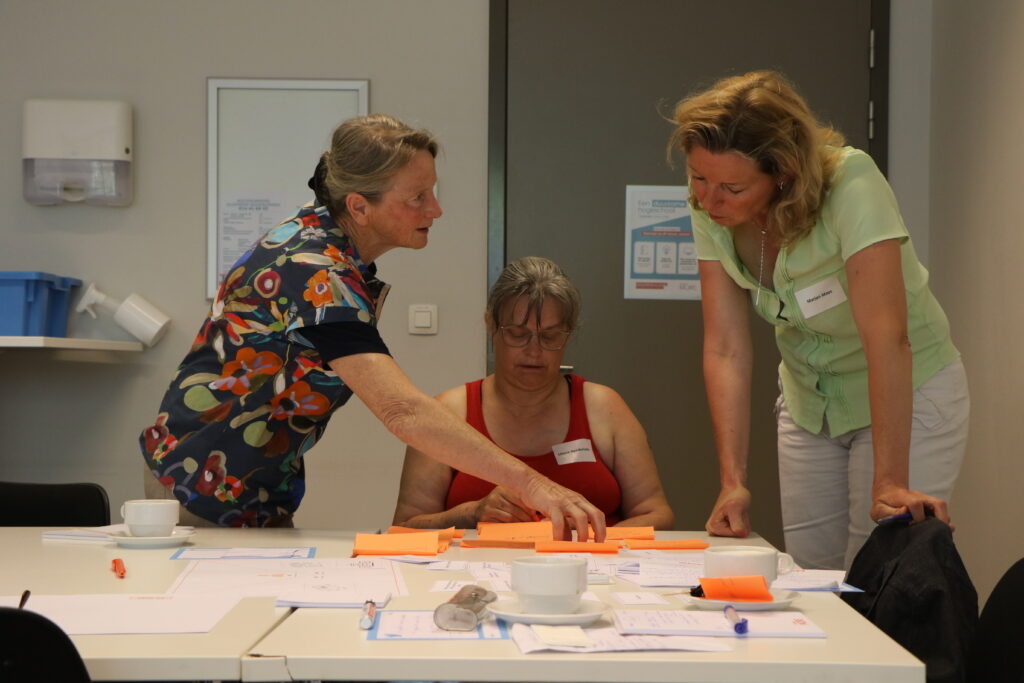
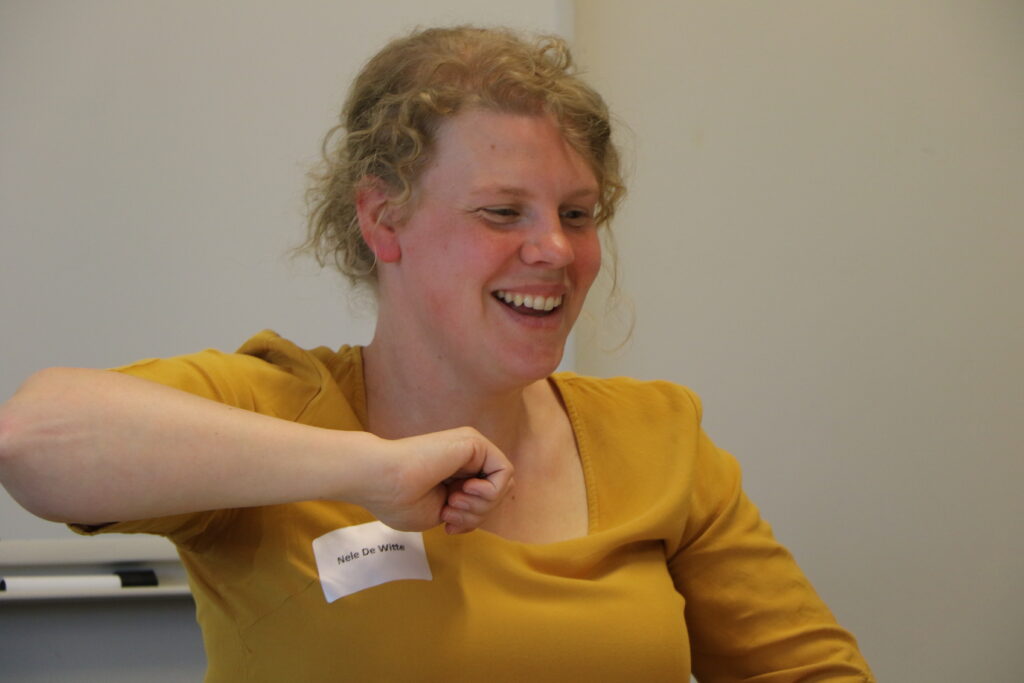
Belgium kicked off the design sprint on 6 June with six participants including four citizens and two professionals (an academic partner and a psychologist). One eager citizen returned for this round from the Sustain-a-thon to further collaborate on nudging strategies. That is the motivation our partners like to see! Additional sprints have been equally planned where healthcare professionals (such as nurses or pharmacists) will join the conversation to provide a nuanced overview.
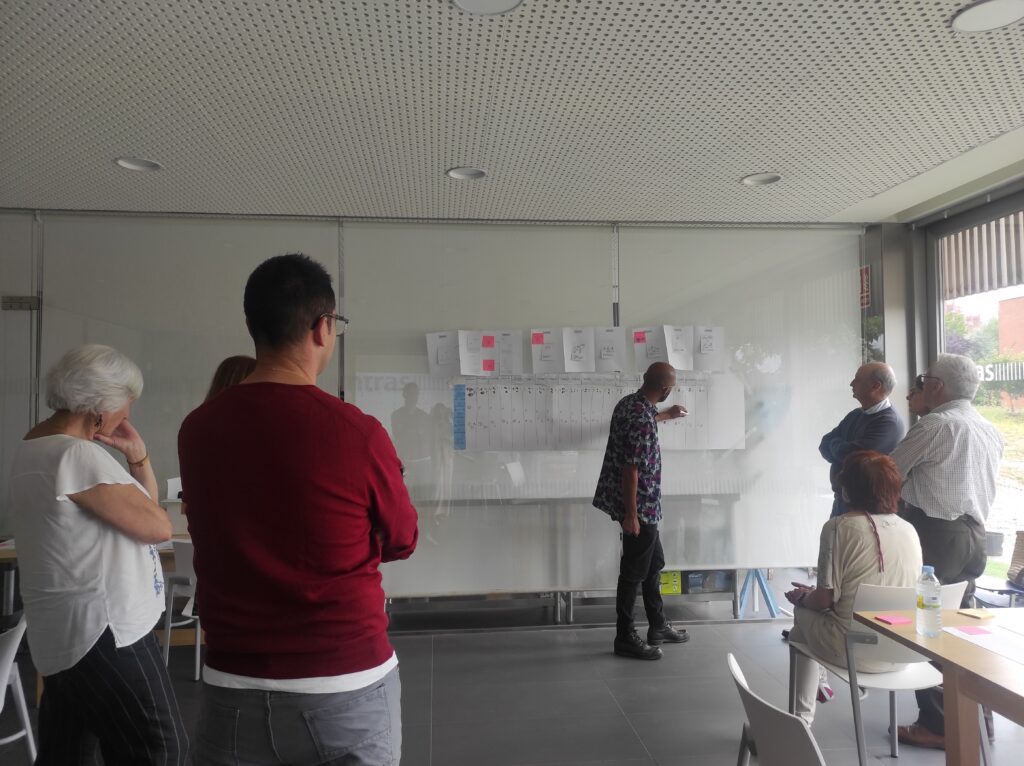
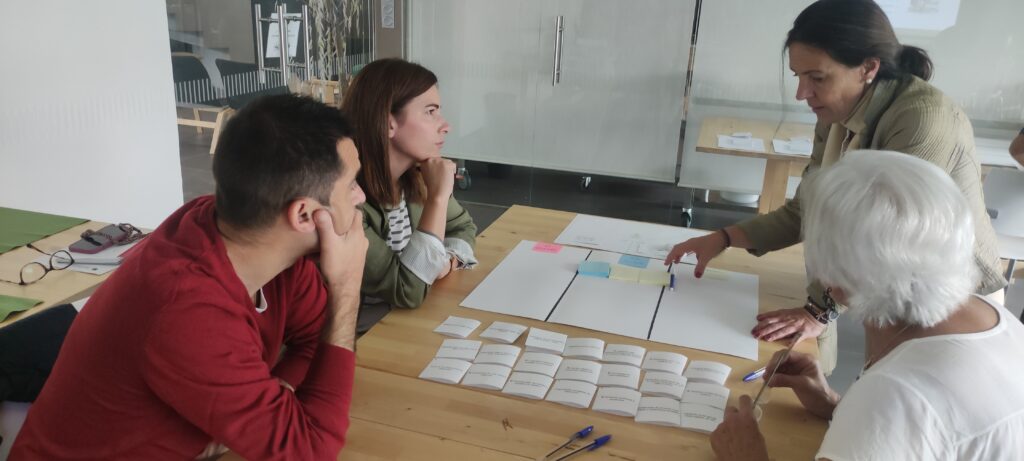
Seven participants joined the design sprint in Spain on 8 June, including two social and healthcare professionals, two professionals from n the recycling sector, and three patients. More than half of the participants had previously collaborated on the Spanish Sustain-a-thon session – what an inspiration! The design sprint was held in an atmosphere of trust and complicity, which fostered a work space with very promising results. During the participatory activity, interesting reflections and potential nudging strategies for the collecting, recycling, refurbishment, remanufacturing and reuse of electronic waste were proposed in addition to identifying the most valuable values that can promote this process.
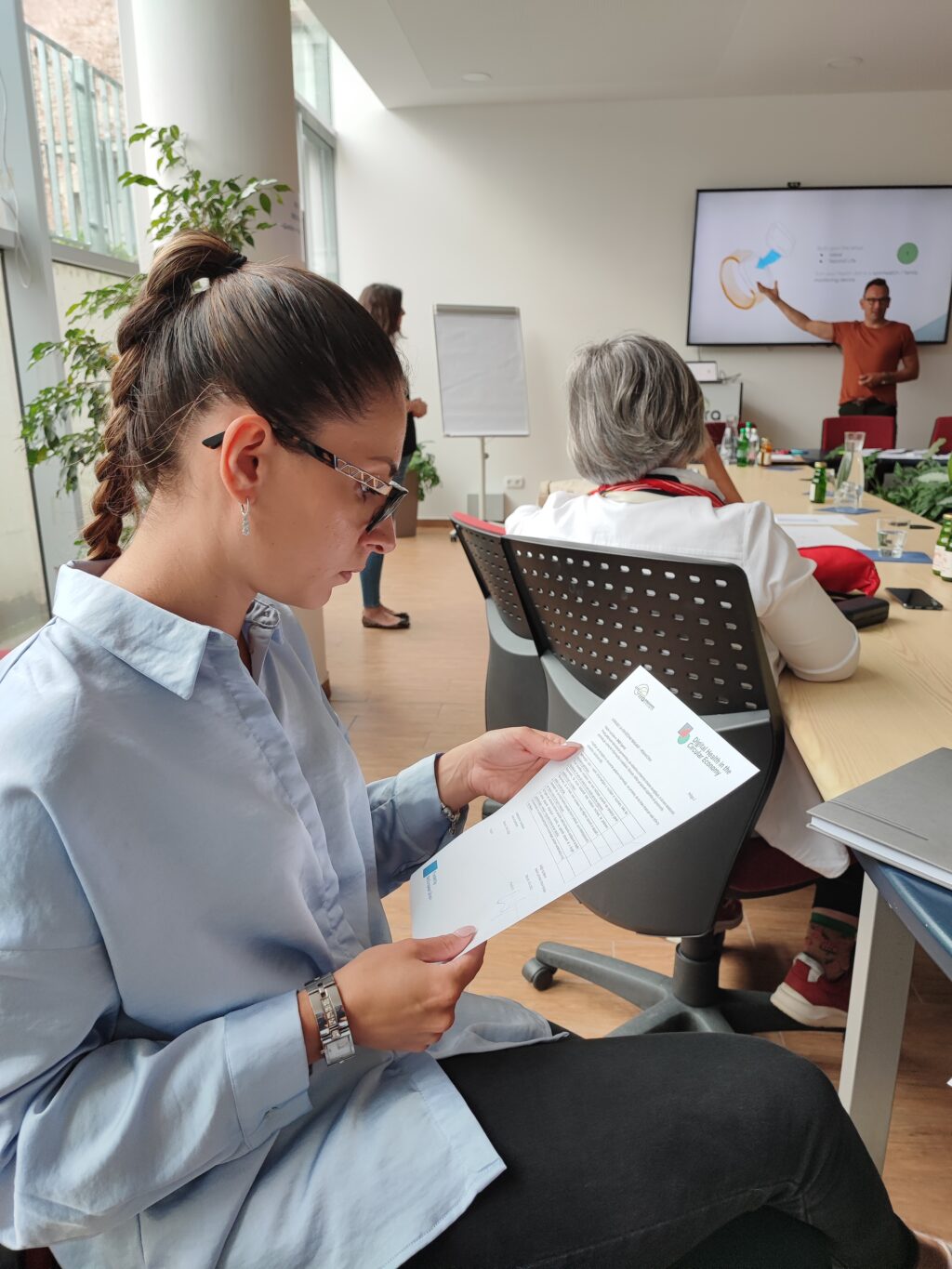
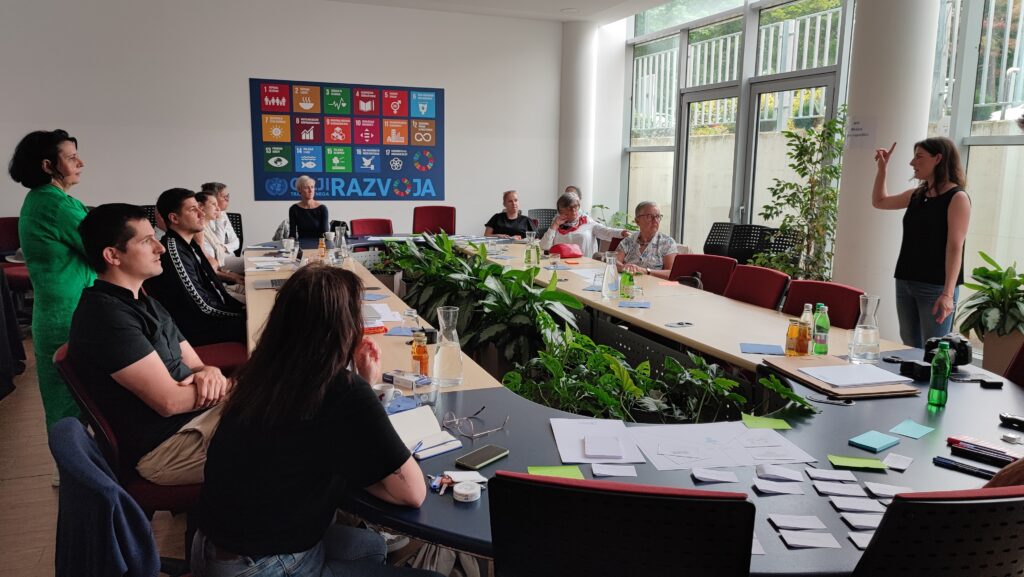
The sprint closed with 12 participants on 14 June, in Maribor, Slovenia. Several potential users of electronic medical devices, pensioners, doctors and civil servants made up the audience. Under the excellent guidance of Menno from Games for Health, the participants had fun discovering the possibilities of reusing the tested products and realised that both devices could be turned into a useful object after their initial use.
Following the Design Sprints, DiCE researchers will compile the results and propose solid nudging strategies, which will be analysed and discussed by the same participants in the two upcoming rounds of feedback sessions, to improve and adapt them to the needs and interests of citizens.

